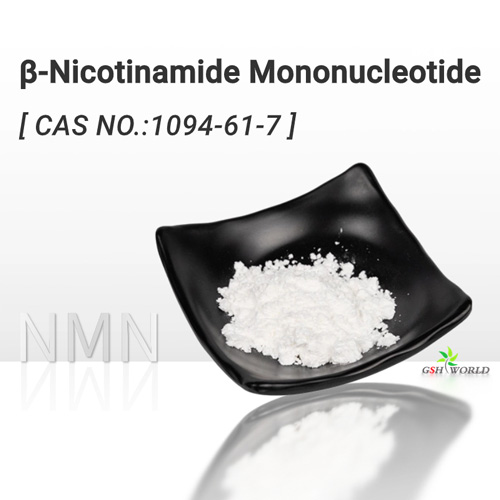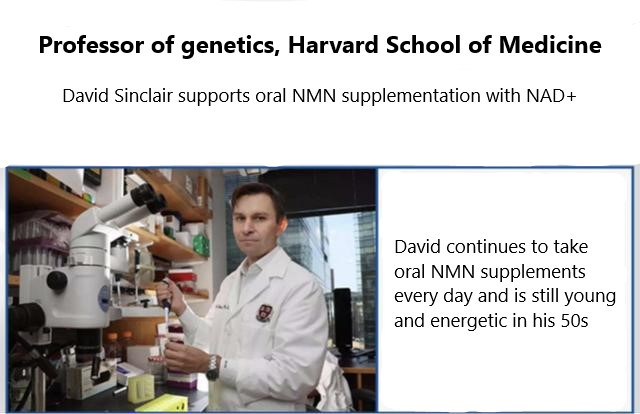Studies have confirmed that NMN inhibits tumor growth by 71.4% and protects immune cell health!
Since Harvard professor David Sinclair revealed the miraculous effect of NMN in extending the life span of mice in 2013, this substance, known as the “elixir of life”, has continued to shine in the field of anti-aging.
A series of studies have shown that NMN can improve insulin sensitivity and help improve the symptoms of metabolic diseases such as diabetes.
At the same time, it can also delay the hardening of arteries, muscle atrophy, skin aging and intestinal aging and other age-related health problems. These discoveries have made NMN a star molecule in the anti-aging field.
However, the magic of NMN goes far beyond that.
Recently, a team led by Professor Haruka Wada of Hokkaido University in Japan has made a breakthrough in anti-cancer research. The new study was published in the Journal for ImmunoTherapy of Cancer.
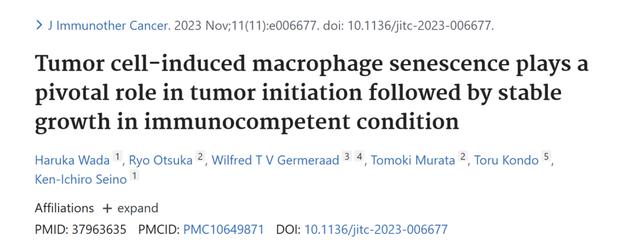
They found that NMN also has anti-cancer effects!

Research has shown that cancer stem cells cause macrophages to age.
Macrophages are the first line in our body responsible for destroying cancer cells, but the presence of cancer stem cells makes them inactive and unable to effectively remove cancer cells.
However, this changed significantly when NMN was given to mice inoculated with cancer stem cells. NMN not only improved the aging state of macrophages, but also significantly prevented the growth of tumors. What is more exciting is that the survival time of mice supplemented with NMN is significantly extended, and the survival rate is also greatly improved.
Cancer stem cells and macrophages
First, to investigate the effect of cancer stem cells on immune cells, the researchers cultured cancer stem cells in a culture dish along with immune cells such as macrophages and T cells.
Macrophages are the body’s “cleaners,” destroying pathogens and clearing away dead cells, and are crucial in fighting infections and tumors.
T cells are like “special forces” that can accurately recognize and destroy specific pathogens, prevent the accumulation of pathogens to cause cancer, and continue to protect our bodies after the disease has recovered.
The observations, however, were surprising.
In the presence of cancer stem cells, the growth of macrophages is significantly inhibited.
These macrophages become flat and enlarged, exhibiting a state similar to senescence. To find out if the macrophages were truly aging, the researchers used a widely used aging marker called SA-beta-gal.
When SA-beta-gal activity increases in cells, this is often an important feature of cellular aging.
The results showed that the SA-β-gal activity in these macrophages met the criteria for senescent cells.
This suggests that macrophages do indeed age under the influence of cancer stem cells.
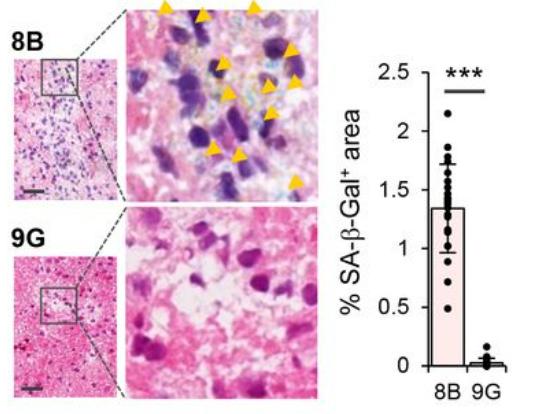
Macrophages are not easy
The research team found that cancer stem cells not only affect macrophages,
but also disrupt the function of T cells, immune cells that specialize in recognizing and destroying pathogens.
Despite the presence of T cells in the cancer stem cell environment,
tumors able to grow rapidly, suggesting that T cell activity suppressed.
Further research revealed that this inhibition caused by “renegade” macrophages.
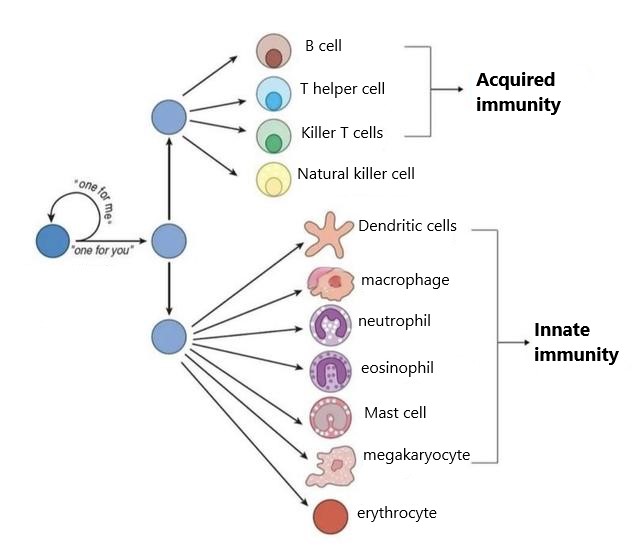
These aging macrophages secrete a powerful immunosuppressive molecule, arginase-1,
which reduces the reactivity of T cells, leading to T cell dysfunction. Therefore, in the presence of cancer stem cells, the suppressed T cells cannot effectively fight cancer cells.
However, arginase-1 is not the source of the problem.
The real culprit is interleukin-6, a cytokine associated with aging, produced by cancer stem cells. It causes normal macrophages to age, which in turn secretes argininase-1, inhibits T cell activity, and ultimately leads to tumor growth.
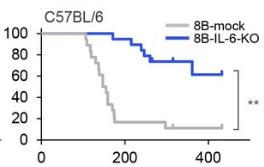
It is it that “turns” the macrophages that supposed to fight cancer – not only does the macrophage itself not work,
but also causes it to secrete arginase-1, so that friendly T cells can not work.
Let’s take a quick look at how cancer stem cells “trick” immune cells and fuel tumor growth:
First, cancer stem cells release a “pro-aging factor” called interleukin 6, which causes macrophages to age.
These aging macrophages then start producing argininase-1, leading to impaired T cell function.
Finally, because neither the macrophages nor the T cells work properly, the tumor allowed to grow unchecked.
Now that we have identified the source of the problem,
the challenge is: How can we save these aging immune cells?
NMN! Don’t worry, I’m coming!
As the study progressed, the scientists discovered that aging macrophages produce a large amount of an enzyme called CD38.
This enzyme breaks down the NAD+ precursor NMN in our body, resulting in reduced levels of NAD.
NAD+ is a substance that is very important for cell health,
and its reduction may be related to the aging of macrophages. So the researchers tried supplementing these aging macrophages with NMN to see if it could help them rejuvenate.
The results were promising: After NMN supplementation, the number of aging macrophages decreased, and the expression of the immunosuppressive molecule arginase-1 also decreased significantly.
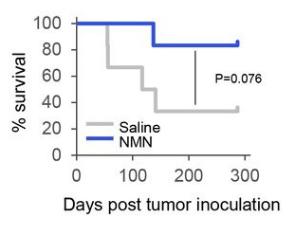
This means that NMN can not only effectively prevent macrophage senescence, but also improve the dysfunction of T cells.
In mouse experiments, the incidence of tumors reduced by 71.4% in the NMN treatment group, and survival rates also improved.
This suggests that NMN can preserve the anticancer function of T cells, thereby inhibiting the development of tumors.
Professor Haruka Wada, from Hokkaido University, said: “Our results show that a drug targeting aging macrophages can treat cancer, which is an unprecedented finding.”
This study provides us with new ideas and methods to fight cancer, and also opens up broader prospects for the application of NMN in the medical field.
This study provides strong support for the application of NMN in the field of anticancer.
It not only revealed the important role of NMN in resisting the aging of immune cells, but also demonstrated the great potential of NMN in inhibiting tumor growth.
This discovery undoubtedly brings new hope to cancer patients, but also provides scientists with a new research direction. In the future, we have reason to expect NMN to play a greater role in the field of anti-cancer and make greater contributions to the cause of human health!
